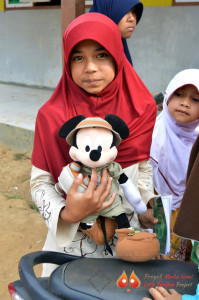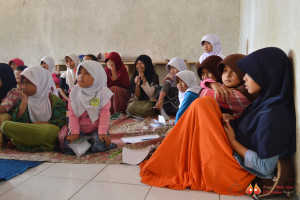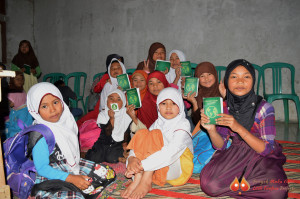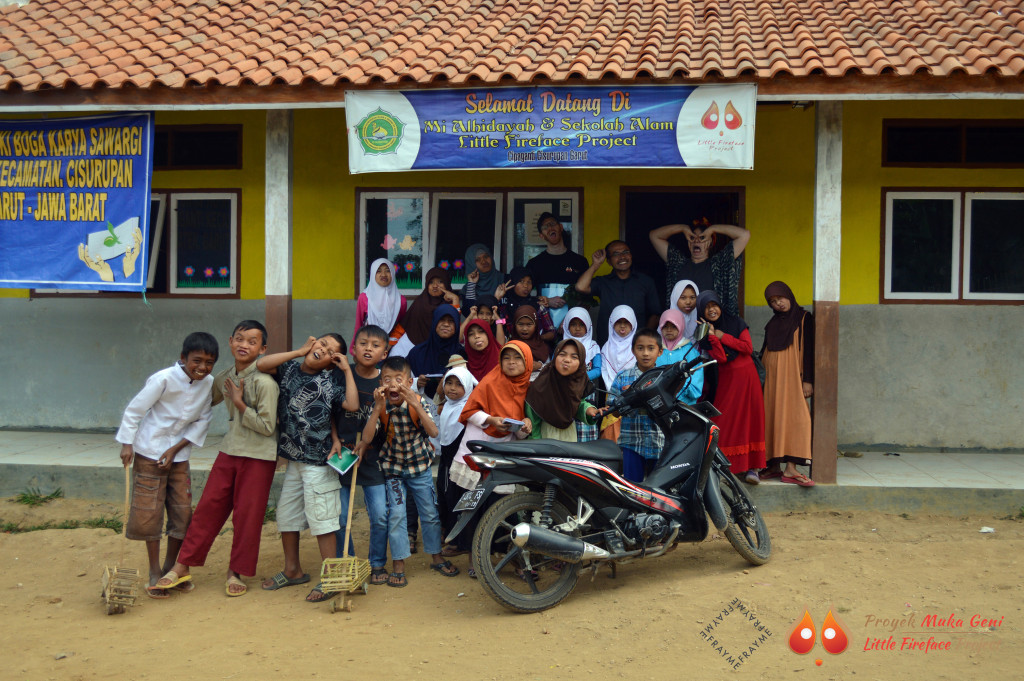“Our greatest natural resource is in the minds of our children.”
– Walt Disney
 It only seems fitting that these famous words were uttered by Walt Disney, a man who cared greatly for both youth and the natural environment. Nature Club, an initiative started by LFP in 2012, aims to nurture those minds and provide them with what they need to make a difference in today’s ever-changing world. Our field site in West Java is a combination of beautiful, Indonesian montane forests facing an increasing presence of agriculture. Educating the local children on the importance of protecting what is left is key to preserving the habitat of the slow loris.
It only seems fitting that these famous words were uttered by Walt Disney, a man who cared greatly for both youth and the natural environment. Nature Club, an initiative started by LFP in 2012, aims to nurture those minds and provide them with what they need to make a difference in today’s ever-changing world. Our field site in West Java is a combination of beautiful, Indonesian montane forests facing an increasing presence of agriculture. Educating the local children on the importance of protecting what is left is key to preserving the habitat of the slow loris.
Every Friday, children from the surrounding villages are invited to join us for the free Nature Club sessions at Sekolah Mi-Alhidayah. The school, which was built with the help of LFP and its sponsors, is run by our head-tracker and project manager Dendi Rustandi. One of the rooms in the inviting and brightly-coloured building is set aside for the use of Nature Club, and as time passes its walls are slowly becoming plastered in drawings, maps, pictures of animals and plants, and murals.

Nature Club aims to educate by providing fun, involving classes on numerous biological and ecological topics. In the past, the children have learned about wildlife (both local and international) from a theoretical perspective, as well as getting involved in a more hands-on manner. Sessions start with a quick English lesson, teaching the children key words for the afternoon ahead. Following, we ask them to fill in questionnaires on the subject matter. By retaking these tests after a few weeks, we can conduct research into the effect of our work by looking at how much the children retain and how their views of the world around them are changing. After the necessities are over, we aim to keep the lessons light-hearted, fun, and involving. We play games, go outside, or have them conduct basic scientific experiments. As long as laughter fills the air we know we’re doing our job well.

At the moment, the focus of the curriculum is on the importance of trees and agroforestry. The children are discovering the botanical world as they build a tree nursery, learning to value trees not just for their ecological, but also for their economic benefits. As the landscape in Cipaganti is facing pressure from agriculture, the loris habitat is slowly disappearing. By educating the children (and, in separate efforts, the farmers) on how trees may benefit both themselves and the lorises, we hope to provide an environment where both species can live closely together.
Working with the children here in Cipaganti is incredibly rewarding. Since we started the new curriculum last month, attendance has increased every week. Whenever I walk through the schoolgates, I am welcomed by a group of excited children: “Miss Pey, miss Pey! Apa kabar?” The only answer I can give, is great. Things here are absolutely great.

